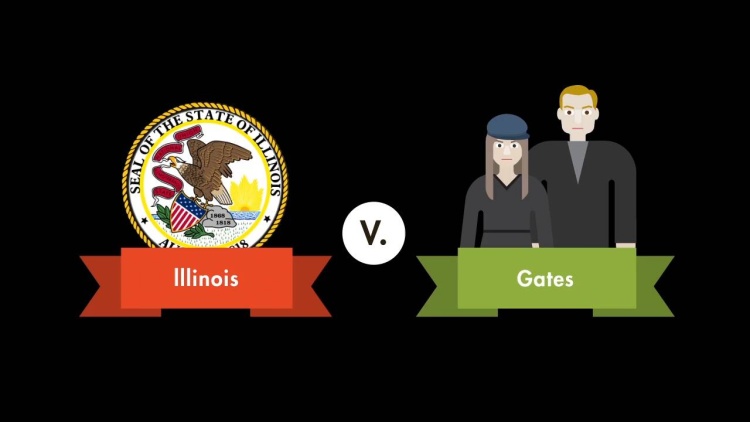Illinois v. Gates
United States Supreme Court
462 U.S. 213, 103 S. Ct. 2317, 76 L. Ed. 2d 527 (1983)
- Written by Sarah Venti, JD
Facts
Police received an anonymous letter implicating Sue and Lance Gates (defendants) in an elaborate illegal-drug scheme. The letter contained many details about the couple and their drug business, including how the Gateses would obtain their illegal marijuana to sell and when the next transaction would occur. Based on this information, the police department conducted its own investigation, which revealed that parts of the informant’s tip were true, and only one discrepancy between what the informant said would happen and what did happen was uncovered. The police were able to secure a search warrant of the Gateses’ home and car, where they found drugs, weapons, and other contraband. The Illinois Supreme Court upheld the lower court’s ruling that the search was unlawful. The court held that the anonymous letter and the police detective’s affidavit outlining the police investigation did not support the probable cause needed to obtain the search warrant.
Rule of Law
Issue
Holding and Reasoning (Rehnquist, J.)
Concurrence (White, J.)
Dissent (Brennan, J.)
Dissent (Stevens, J.)
What to do next…
Here's why 904,000 law students have relied on our case briefs:
- Written by law professors and practitioners, not other law students. 47,100 briefs, keyed to 995 casebooks. Top-notch customer support.
- The right amount of information, includes the facts, issues, rule of law, holding and reasoning, and any concurrences and dissents.
- Access in your classes, works on your mobile and tablet. Massive library of related video lessons and high quality multiple-choice questions.
- Easy to use, uniform format for every case brief. Written in plain English, not in legalese. Our briefs summarize and simplify; they don’t just repeat the court’s language.





